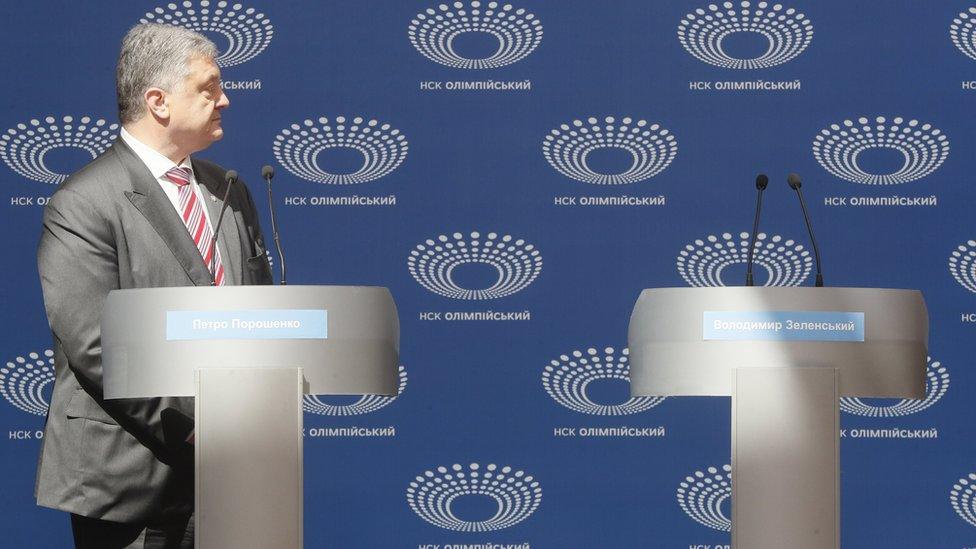Russia offers passports to people in eastern Ukraine territories
- Published
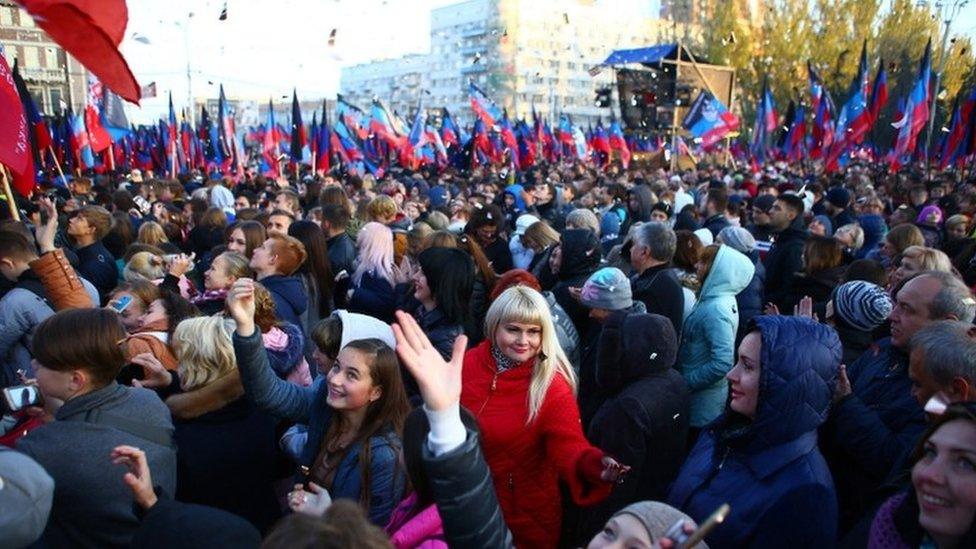
People in the self-proclaimed "Donetsk Republic" await Denis Pushilin, the acting leader, in November 2018
President Vladimir Putin signed a decree on Wednesday that makes it easier for those living in eastern Ukraine's separatist territories to access a Russian passport.
The move is seen as a challenge to Volodymyr Zelensky, the former comedian elected president this weekend.
In a Facebook post, Mr Zelensky's team labelled Russia "an aggressor state which wages war against Ukraine".
Mr Putin said there was "nothing unusual" about the passport offer.
"It's strange that this provokes a negative reaction," he said on Thursday.
What Zelensky said
The Zelensky team said earlier that through the decree Russia had "acknowledged its responsibility as an occupier state".
"This decree is not bringing us closer to achieving the ultimate goal: a ceasefire," it said.
It called on the international community to provide "diplomatic pressure and the pressure of sanctions".
The decree is aimed at people living in the unrecognised, self-styled republics of Donetsk and Luhansk, seized by Russian-backed separatists in 2014 after Russia annexed Crimea from Ukraine.
"For many years already - about 10 years - Poland has been giving out passports, Hungary has also been doing so, to Hungarians, and Romania... so are Russians living in Ukraine worse than Poles, Hungarians?" Mr Putin said in Vladivostok.
"They have family ties, mixed marriages, and so on. I see nothing unusual in this".

Mr Putin had said earlier that people living in those areas were "completely deprived of civil rights" and could not "move normally" or "realise their most elementary needs".
"We have no desire to create problems for the new Ukrainian authorities," Mr Putin added.
What's the background?
Conflict in the region has claimed about 13,000 lives since Moscow annexed Ukraine's Crimea peninsula in 2014.
Mr Zelensky was elected as Ukraine's next president on Sunday, with no previous political experience. He played the role of president in a comedy television show.
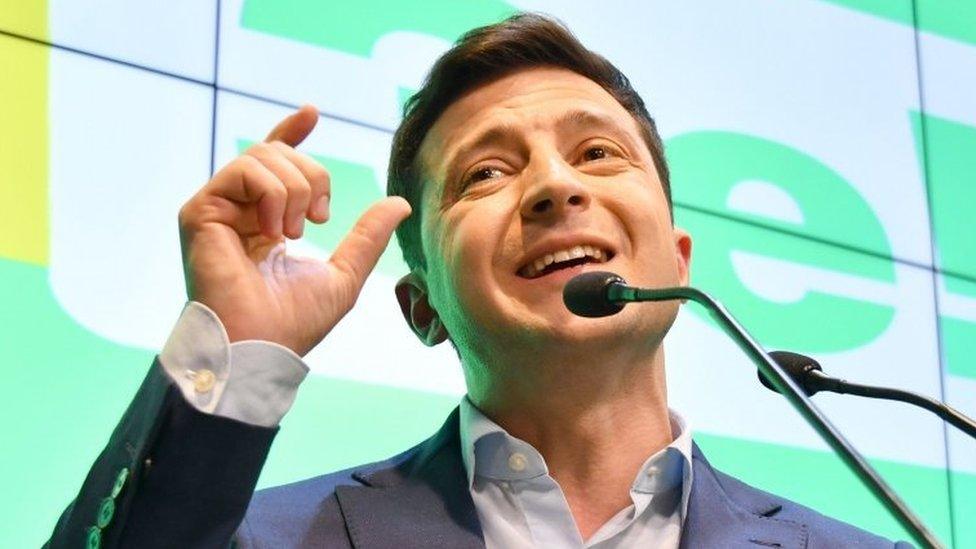
Volodymyr Zelensky: His predecessor as president called him too inexperienced to stand up to Russia effectively
In the run-up to his election, he said he wanted to "renew relations" with eastern Ukraine and start a "powerful information war to end the conflict".
In response, Russia says it wants him to show "sound judgement", "honesty" and "pragmatism" so that relations can improve.

Hopes for a fresh start killed off by Russia
Analysis by Jonah Fisher, BBC News, Kiev
There had been a school of thought that the election of Volodymyr Zelensky might bring fresh life to efforts to solve the conflict in eastern Ukraine. During the campaign he'd made vague if slightly conciliatory noises about the important of dialogue and talks.
Russia seems to have killed any prospect of that.
First, Moscow held off from congratulating Mr Zelensky for his landslide win.
Then just three days after the vote, Vladimir Putin announced he would give Russian passports to people regarded by everyone bar Russia as Ukrainians living on Ukrainian soil. In Kiev it's being seen another step towards eventual Russian annexation.
Mr Zelensky has been left with no choice. He's issued a statement condemning the Russian move and calling for increased pressure through diplomacy and sanctions. It's the sort of wording we've become used to seeing in the last five years from Ukraine. The fact that this time it has come from Mr Zelensky suggests that relations are unlikely to improve.

What has the reaction been?
Ukraine's Foreign Minister Pavlo Klimkin labelled the decree a "continuation of aggression and interference in our internal affairs" and urged the residents of eastern Ukraine not to accept the passports.
In a Twitter post, he told them: "Russia has deprived you of the present, and now it is trespassing on your future."
Iryna Gerashchenko, the deputy speaker of the Ukrainian parliament, noted the timing of the announcement.
Mr Putin "always uses moments of uncertainty and transition periods to plunge another knife into Ukraine's back", she said.
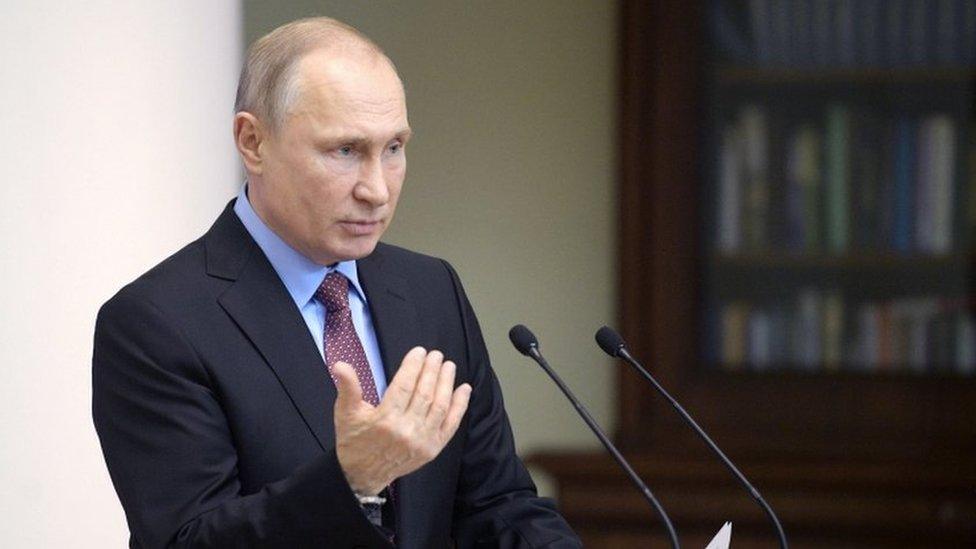
President Putin delivered the speech announcing the passport policy to lawmakers in Saint Petersburg, Russia on April 24
She labelled the decision a "gross violation" of peace agreements signed by Russia, Ukraine, France and Germany in 2015.
In a tweet, Lithuanian Foreign Minister Linas Linkevicius noted how Mr Putin used "passportization" in the breakaway Georgian areas of Abkhazia in 2002 and then South Ossetia in 2008, resulting in a 20% occupation of Georgian territory.
Allow X content?
This article contains content provided by X. We ask for your permission before anything is loaded, as they may be using cookies and other technologies. You may want to read X’s cookie policy, external and privacy policy, external before accepting. To view this content choose ‘accept and continue’.

Referring to the timing of the announcement - shortly after the election result - Ukrainian Deputy Foreign Minister Serhiy Kyslytsya called the move a "time-based action", and said it was a challenge "not only for Kiev but Berlin, Paris, Brussels and Washington". He called for immediate action.
- Published22 April 2019
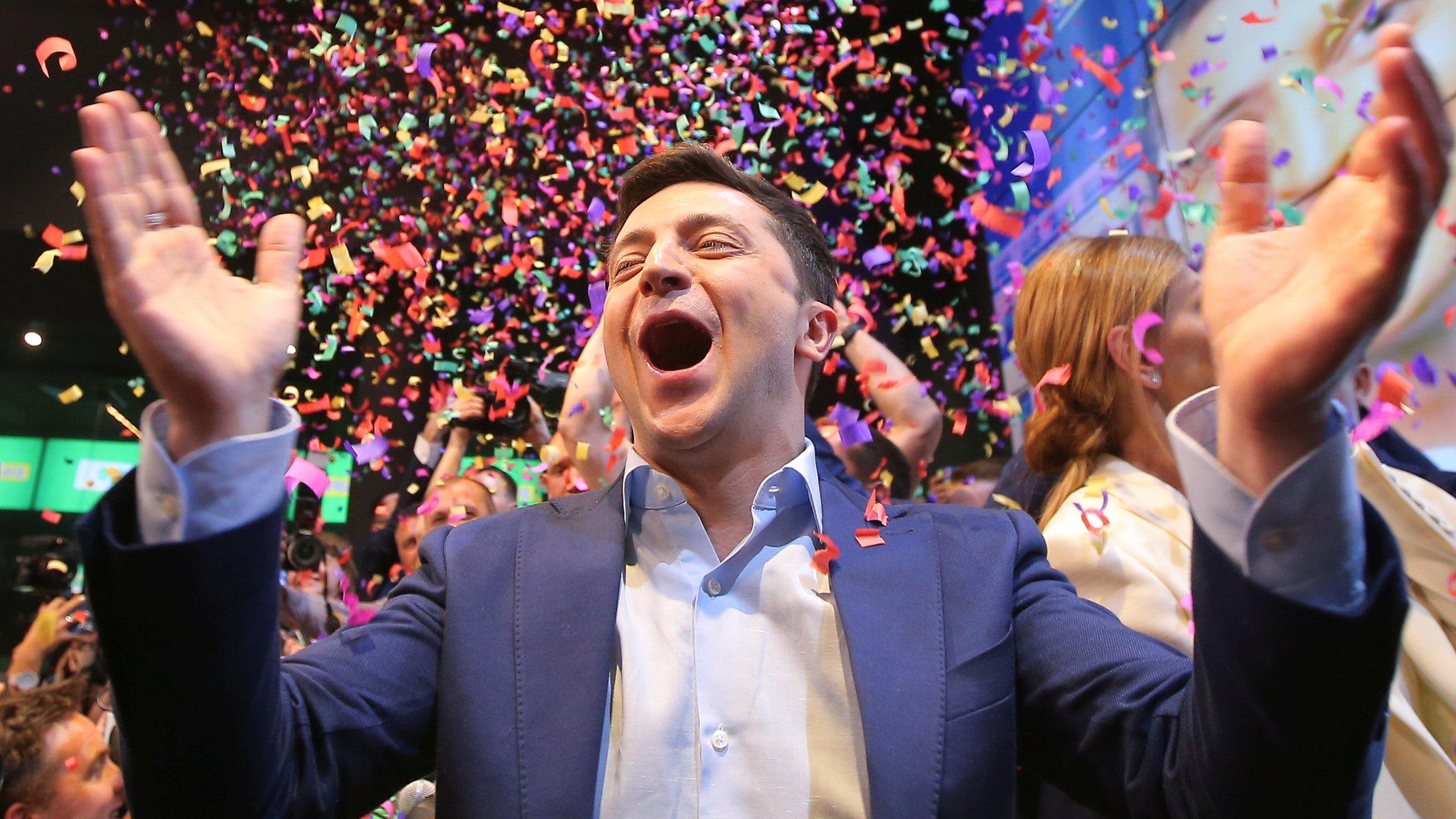
- Published23 April 2019
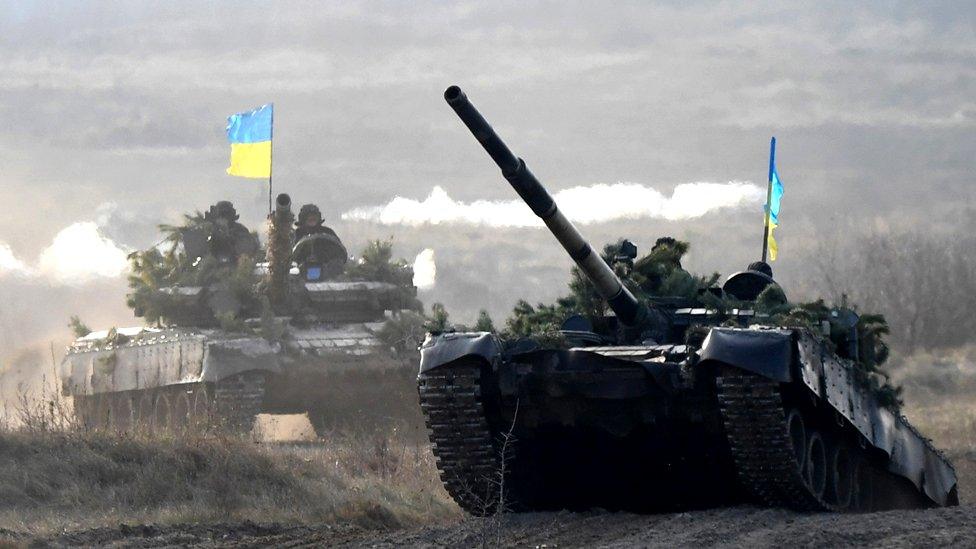
- Published13 November 2014
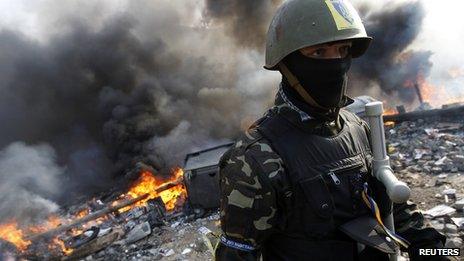
- Published14 April 2019
